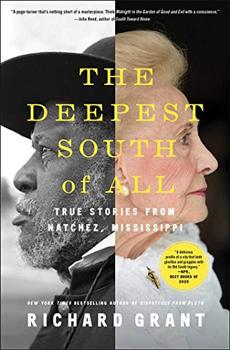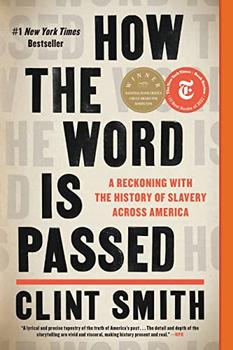Summary | Excerpt | Reviews | Beyond the book | Read-Alikes | Genres & Themes | Author Bio

True Stories from Natchez, Mississippi
by Richard GrantAuthor Richard Grant frequently uses his wanderlust to explore diverse stories that create a complex sense of place. Certainly Natchez, Mississippi proves worthy of close examination given its grim legacy of slavery on its once expansive cotton plantations. In The Deepest South of All, Grant reveals that Natchez is a paradox: a place where women still dress up in hoop skirts and give garden tours of antebellum homes, and also a place that is finally starting to search for ways to facilitate race relations. Many white Natchezians are beginning to acknowledge the travesty of these superficial tours, as well as the myopic history that has been told in Natchez to date.
Grant's stories of modern-day Natchez seem implausible at times. Warring factions of garden clubs plot against one another while mothers strategically position their toddlers to ultimately become the King or Queen of the Tableaux — a grand scale production that includes yet more hoop skirts and, shockingly, young men in Confederate uniforms. One of the largest challenges of the royal duties? "[T]he number of boozy brunches, cocktail parties, and late-night balls that they were required to attend—for a month straight—while also trying to attend college, maintain grades, and not get arrested for drunk driving." Parents often hire chauffeurs, even helicopters, to ferry their children back to college, as being selected for the Tableaux is such an honor.
While these outlandish accounts might be entertaining without social and historical context, set against the backdrop of the Forks of the Road, the former location of one of the largest slave trade markets in the country, they are extremely unsettling. The extent to which some Natchezians deny the atrocities of slavery and effects of racism is appalling. Grant notes that "the struggles, marches, and violence of the civil rights era were poorly understood and largely forgotten." One white Natchezian, Regina Charboneau, confesses she was ignorant of the struggle of the Black community growing up, as her mother sheltered her from Klan activities and civil rights protests.
Grant wholly acknowledges this jarring contrast of white amnesia and Black pain. He provides balance and perspective by including historical details regarding slavery and racism in Natchez. Most notably, he recounts the story of a West African prince, Abd al-Rahman Ibrahima, as he was brought to the Forks of the Road and sold into slavery for 30 years before he attained freedom. Ibrahima's narrative, as well as those of other Black Natchezians, adds valuable historical context to plantation tours and young people donning Confederate uniforms.
Grant weaves together Natchez's past and present, as well as lighter and heavier subject matter, rather seamlessly. His candid humor brings levity, while his attention to history provides important reflections on the area's past. Whether it be the intrigue of bizarre stories such as the "Goat Castle Murders" or the secrecy of the clandestine Black paramilitary group known as the Deacons of Defense, his writing will inspire in readers a desire to further explore the city of Natchez.
In a pandemic world where travel has been greatly thwarted, Grant takes us to an astonishing place where "oddballs get free range" that is also steeped in the kinds of history lessons all Americans should know. So when you do ultimately travel to Natchez after reading The Deepest South of All, skip the plantation tour and take a moment to reflect on the city's newest monument commemorating Black civil rights activists, "Proud to Take a Stand."
![]() This review was originally published in The BookBrowse Review in October 2020, and has been updated for the
October 2021 edition.
Click here to go to this issue.
This review was originally published in The BookBrowse Review in October 2020, and has been updated for the
October 2021 edition.
Click here to go to this issue.

If you liked The Deepest South of All, try these:

by Robert Samuels, Toluse Olorunnipa
Published 2024
A landmark biography by two prizewinning Washington Post reporters that reveals how systemic racism shaped George Floyd's life and legacy - from his family's roots in the tobacco fields of North Carolina, to ongoing inequality in housing, education, health care, criminal justice, and policing - telling the singular story of how one man's tragic ...

by Clint Smith
Published 2022
The Atlantic staff writer and poet Clint Smith's revealing, contemporary portrait of America as a slave owning nation.
The whole problem with the world is that fools and fanatics are always so certain of themselves, and wiser people ...
Click Here to find out who said this, as well as discovering other famous literary quotes!
Your guide toexceptional books
BookBrowse seeks out and recommends the best in contemporary fiction and nonfiction—books that not only engage and entertain but also deepen our understanding of ourselves and the world around us.